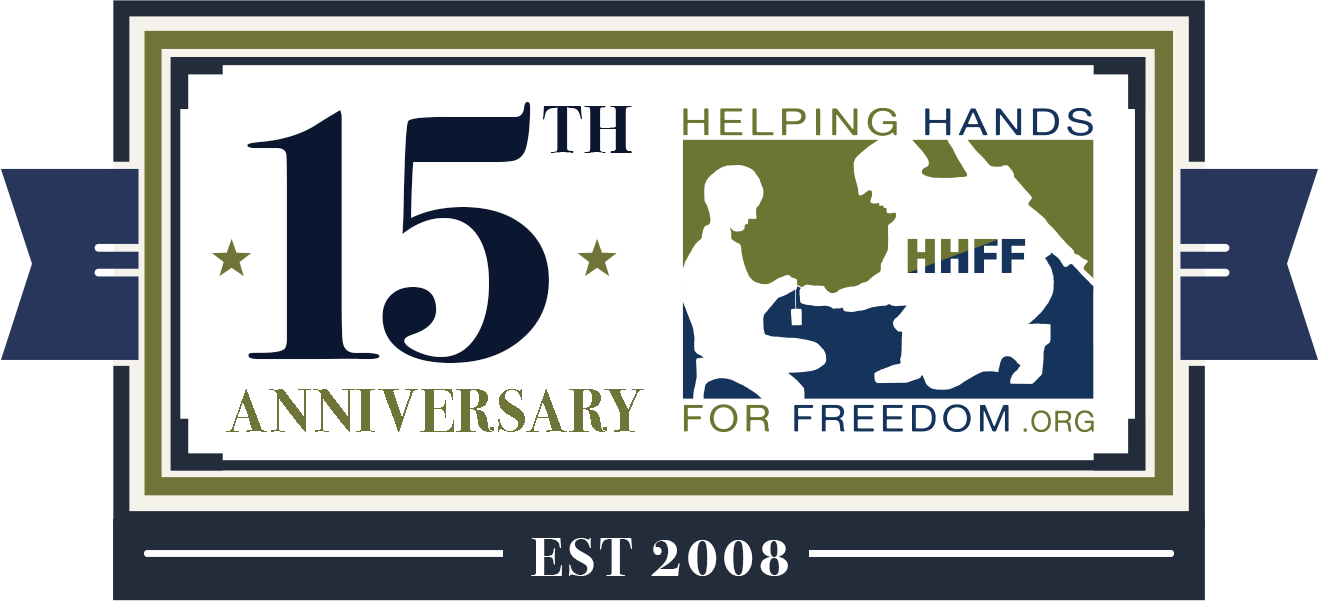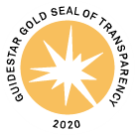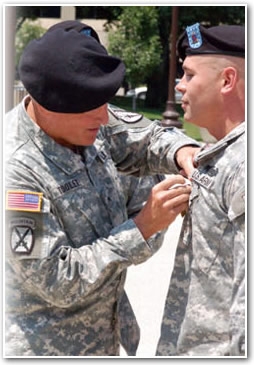For Immediate Release – November, 12, 2015 – From Walmart One
Staff Sgt. Patrick S., manager of Walmart Store 1557 in Fishers, Ind., earned a Purple Heart, a Bronze Star, and, in 2007, the Sam Walton Hero Award for his actions during a firefight in Iraq. His injuries, which he still deals with today, led him to reach out to others in a remarkable way.
My father was a Marine; that’s part of why I wanted to join. And I did so on the day I turned 18—Dec. 7, 1987—before I’d even finished high school. I served for eight years, doing combat tours in both Somalia and Iraq, before rejoining civilian life in 1996 as a Marine Reservist. At that point, I hoped to work in law enforcement, but the pay was dismal. I looked some more and ended up in retail.
At the time, Walmart was starting to build Supercenters; when they built one in Indianapolis, I was recruited. I felt a connection through the company’s commitment to veterans, and I loved the wealth of opportunities there, but I grew to miss the military cause. So, in 2003, when I was a market grocery manager, I joined the Army National Guard. As a guardsman, I helped in the aftermath of Hurricane Katrina for three months, all with Walmart’s blessing. They encouraged me to go, and they allowed me to come back—I even got a promotion shortly after I returned. They were amazingly gracious, and they were gracious again when, in June 2006, I was called up to go to Iraq.
Five months later, I found myself in the firestorm that ended my trip.
Utter Chaos
It happened on my last day in Iraq: Nov. 29, 2006. I was the Army National Guard’s Police Transition Team Officer in Ramadi, leading about 15 American soldiers in training more than 200 Iraqi police. We’d just returned to the Al Hyria Police Station after walking the neighborhoods—what we call “soft ops,” talking to Iraqis and their families, looking for explosives, noting anything even remotely suspicious. It was just after noon; I remember that it was very warm. Then the world exploded. Mortars rained down; there was shrapnel and incoming fire. It was utter chaos.
A mortar landed close to me as I struggled to get my men in a position to return fire, and the concussive force of the blow and the shrapnel that ripped through me are the sources of my enduring injuries. But I don’t recall feeling much at the time. My adrenalin was raging. I needed to get my wounded soldiers and Iraqis out of there. As the firefight died down, I mobilized the able-bodied to get the wounded—Iraqis as well as Americans—back to safety at Camp Ramadi. That battle-time decision is why I was awarded the Purple Heart, the Bronze Star, and the Sam Walton Hero Award, all tremendous honors. But what I did that day was simply what I had been trained all my life to do.
More Serious Than I Thought
When the wounded had all been evacuated, I finally had the mental space to evaluate my own situation. That’s when I noticed that my wounds, which were all to my left side—the side closest to the mortar—were more serious than I had thought. I was medevaced to a succession of hospitals, first in Iraq, then in Germany, and finally Walter Reed National Military Medical Center in Bethesda, Md., where I stayed for the next five months
I was in danger of losing my left eye; I’m legally blind in that eye today. I also have little feeling on the left side of my face, so, while I was recovering, I also had to relearn to speak. And there was the pesky problem of a moderate traumatic brain injury to deal with.
It wasn’t until a year after my release from Walter Reed that I was able to go back to Walmart. Julie Murphy, then my regional vice president, had been waiting patiently and showing me and my family amazing above-and-beyond support. I needed it: To this day, my brain injury makes it tough for me to remember small things. But I have learned to live with and work around my deficits—the operative word being “live.” So many of my fellow warriors did not. It’s something I thought about a lot as I recovered. And I started to think that I could help.
Giving a Helping Hand
While I was at Walter Reed, I got involved in the Wounded Warrior Project, and it was through that organization and my own experience that I came to see an equally urgent need for the families of the wounded and fallen. These are families who’ve had their husbands and fathers taken from them only to then have their homes, their dignity, and their dreams ripped from them, too. At Walter Reed I realized that I got to come back—to my family. To Walmart. I found myself asking, what if I hadn’t been so lucky?
So in 2009, I co-founded Helping Hands for Freedom with the goal of helping military families in need. We assist with rent and bills when it’s needed, and we try to fulfill the dreams of the children of the fallen and wounded. We do anything and everything we can—we recently helped the family of a killed-in-action serviceman; the family had fallen on hard times and was homeless. We helped them find a home, paid the first few months’ rent and utilities, and got them clothes and food to help them get a new start. It’s work like this that helps me feel strong and whole. Even healed.
It means something to work for a company that stands behind veterans. I saw it and experienced it firsthand through my deployments. But it wasn’t until I got hurt and really needed Walmart’s commitment, and received it, that I saw the sincerity behind the words and the actions behind the words. Those actions, that support—they’re what I want to give back. Just because I can.
A Family- Supporting Walk
Helping Hands for Freedom (hh4f.org)—one of the Hallmark Channel’s National Military Family Charities of the Year in 2014—supports the families of veterans who are either wounded in conflict or don’t return home at all. In spring of 2016, the organization is planning Route for the Brave (routeforthebrave.org), a walk across America to raise funds for a retreat house for families of fallen or wounded warriors. “We’ll be walking across U.S. Route 40,” says Patrick, “and we’d love any Walmart stores along the route to send associates to walk and/or to cheer—and we won’t turn away donations, either.” www.routeforthebrave.org
Helping Hands for Freedom is a 501(c)3 non-profit organization that supports military children & families facing injury, loss, and multiple deployments. You can learn more about us at www.helpinghandsforfreedom.org


